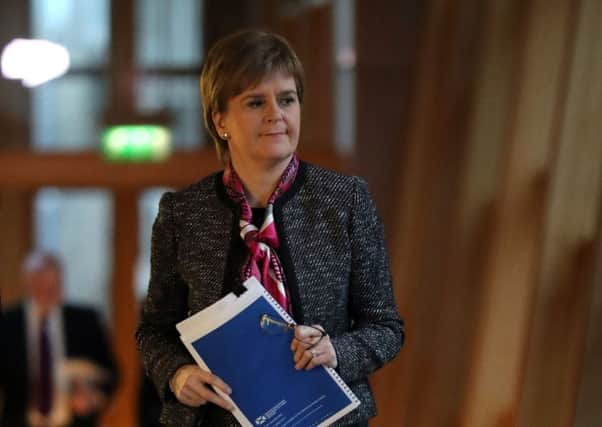Brexit: Farming clarity lacking in First Minister's plan
This article contains affiliate links. We may earn a small commission on items purchased through this article, but that does not affect our editorial judgement.


They have, however, provided an interesting set of proposals that need to be carefully considered and their ramifications thought through, according to NFU Scotland chief executive Scott Walker.
Commenting on yesterday’s plans which laid out the case for the UK, as a whole, to remain within the European single market (ESM) and within the EU customs union – with the fall-back position of negotiating differential arrangements to allow Scotland to do so – Walker said that nothing about Brexit was simple.
Advertisement
Hide AdAdvertisement
Hide AdWalker said that in the Scottish Government’s own words, the proposals for variations for the devolved administrations were “technically and politically” challenging, adding that many commentators were already saying that what the Scottish Government was proposing was undeliverable.
However, he stressed that the UK’s counter-argument of going it alone and carving out new trading relations with countries around the world could be described as similarly challenging.
Looking at some of the implications for Scottish agriculture under Sturgeon’s plan, he said that if the UK remained in the ESM and the EU customs union, then the UK wouldn’t be able to negotiate its own trade deals with other parts of the world.
“Whether this is good or bad depends upon your view on the capability of the UK to negotiate these deals and whether these deals would be better than anything that can be negotiated by the EU,” Walker said.
Stressing that it was a big “if”, he said that if the UK was willing and able to negotiate differentiated arrangements for Scotland with the EU, then the practical implications could be a nightmare.
“How would goods moved through the UK and then on into Europe be dealt with? Would the administrative arrangements needed in the UK to accommodate such an arrangement be simple?”
Walker also said that there was a clear battle currently under way as to where the power to make agricultural policy would lie post-Brexit.
On one side is the Scottish Government saying that those powers to do with agricultural policy that will be “repatriated” to the UK from Brussels must be the responsibility of the Scottish Parliament, he said, with, on the other side, the UK government, with designs on having a single UK agricultural policy with regional flexibility.
Advertisement
Hide AdAdvertisement
Hide AdHe said: “The big question is what will this mean for the Scottish sector and, of course, what money will go along with these powers?”
Walker said that at the end of the day funding would be critical, adding: “Powers without an appropriate level of funding offers little benefit. So, have we got any more clarity from today’s announcement? The answer is not yet.”
